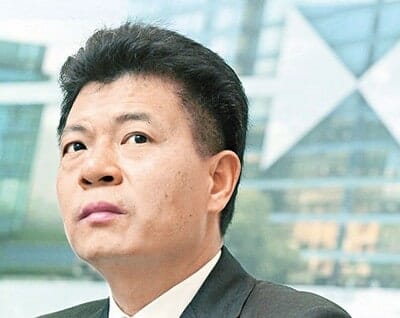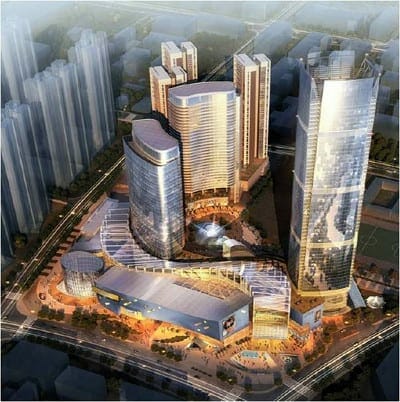
Kaisa chairman Kwok Yingshing reportedly now has 96% of his offshore creditors ready to accept a restructuring deal
Shenzhen-based Kaisa Group Holdings has filed for bankruptcy in the US, in the latest chapter of the Hong Kong-listed developer’s attempt to restructure its debt obligations.
Kaisa, which single-handedly brought the offshore market for Chinese developer bonds to a halt early last year, filed for Chapter 15 bankruptcy protection last week in Manhattan, according to a story by Bloomberg.
The developer’s January 2015 default on its offshore credit obligations came after its company chairman was reportedly detained by authorities and later resigned from the company he founded. Now the former top 20 Chinese builder is closing in on a successful renegotiation of its obligations to creditors as it attempts to rebuild its business.
Kaisa Closes in on Debt Deal

Kaisa ran short of cash when sales at several of its Shenzhen projects were frozen in late 2014
Kaisa is reportedly using the US court maneuver to help it conclude its negotiations with US creditors over the restructuring agreement which is still being negotiated in Hong Kong.
The company’s management, which is led by tycoon Kwok Yingshing, has been working out a restructuring plan since Kwok, who serves as Kaisa’s chairman, returned to the company’s helm in April 2013, and the Shenzhen government allowed Kaisa to return to normal operations.
Kaisa’s US bankruptcy filing specifies that 96 percent of its offshore creditors have now approved the plan to settle $14.9 billion of the company’s obligations, up from 80 percent who had signed uff on the restructuring as of March, according to the Bloomberg account.
Bondholders and other creditors had rejected earlier proposals from Kaisa, and US law firm O’Melveny & Myers reportedly sent a written request to Kaisa Group on October 8th last year, repeating a demand that the Shenzhen-based developer make good on skipped coupon payments on bonds worth more than $2.5 billion or face a wind-up petition in the courts of Hong Kong, according to sources familiar with the proceedings.
Politically Rehabilitated, Now Financially Stable
The Chinese developer’s financial difficulties were triggered not only by Kwok’s personal legal questions, but also by a government freeze on sales at four of its Shenzhen projects.
The company’s initial default on a loan by HSBC in January 2015, and a bond default that same month triggered cross-defaults on obligations to other creditors and led to court actions being filed by both its domestic and overseas lenders and bond holders.
Kwok was reportedly under pressure to provide information on how the company came to acquire some of Shenzhen’s choicest pieces of land during a time when president Xi Jinping’s anti-corruption drive was focused on officials in Guangdong province, and the provincial party secretary was removed from his post under disciplinary charges.
Leave a Reply